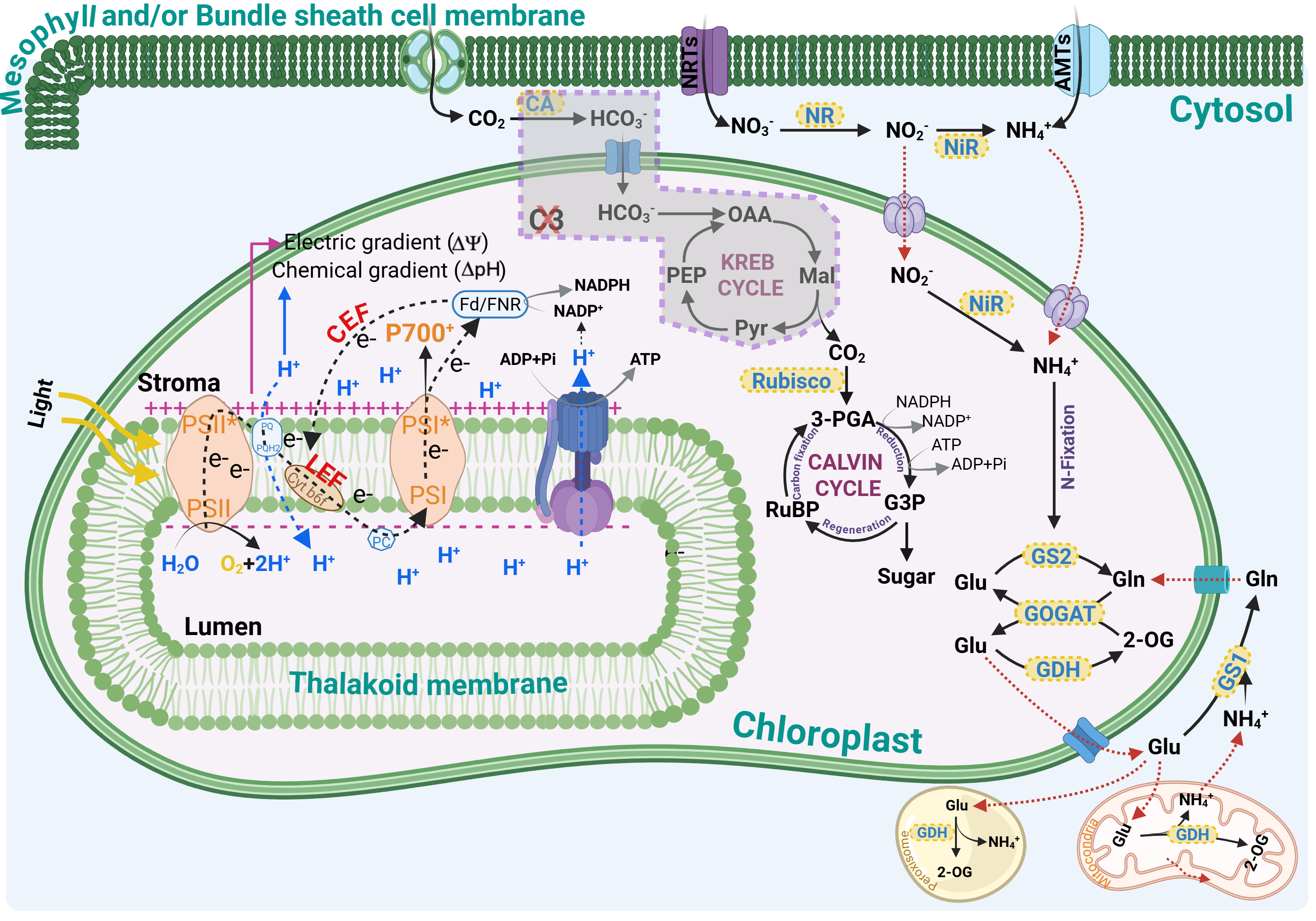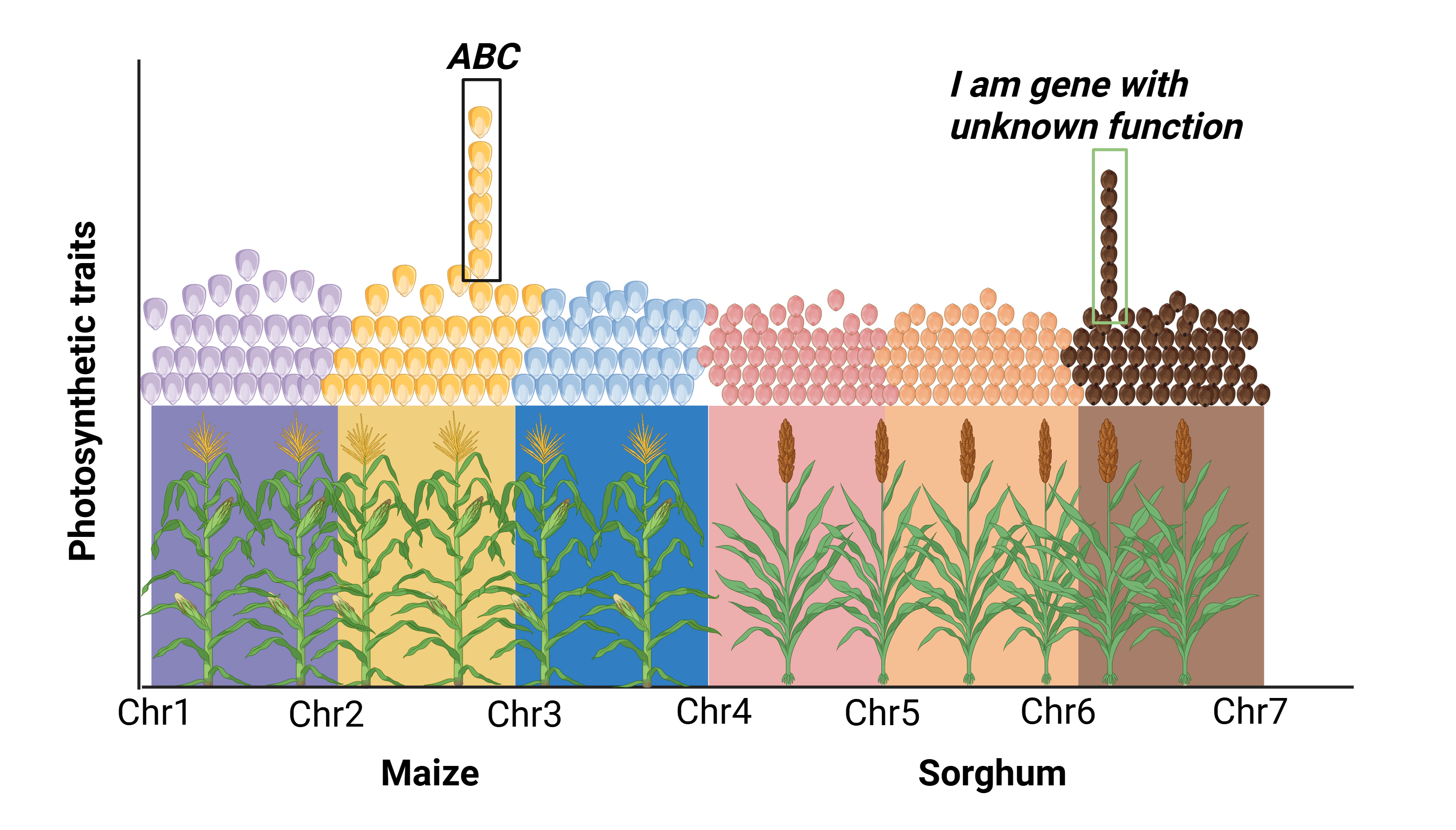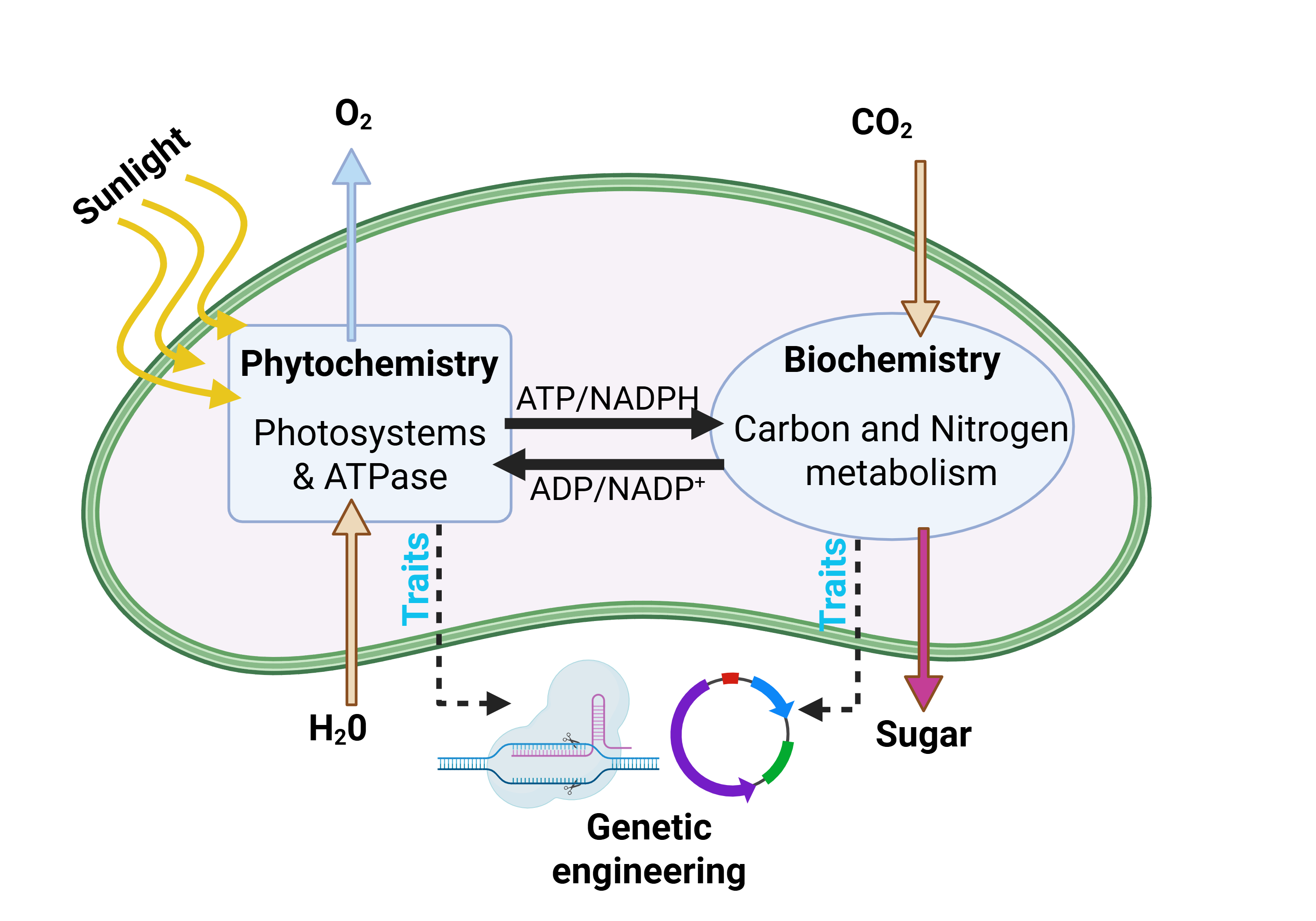Our research focuses on integrating physiological modeling and phenotyping into crop quantitative genetic and crop improvement efforts. The goals of our research are to enhance crop photosynthetic efficiency and nitrogen-use efficiency by finding new genetic resources and under different abiotic stresses. We also aim to modify the physiological pathways that control photosynthetic efficiency and nitrogen use efficiency through synthetic biology approach.
1. Understanding how photosynthesis works in vivo

Our goal is to understand how sunlight photons communicate with H2O to convert CO2 into energy-sourced food, which is called photosynthesis. The changes in this process at physiological and molecular levels influence the C-N budget necessary for overall photosynthetic and nitrogen use efficiency thereby crop productivity. To uncover specific mechanisms within the light-dependent and independent photosynthetic systems (isolated system and in living plants) offers plant physiological status under control and climate-changing natural conditions. The research contributes to the understanding about mechanistic basis for phenotype observed for differential regulation of physiology in and beyond photosynthesis for future plants.
2. Finding new genetic sources in photosynthetic energy and nitrogen conversion

The primary engine of plant productivity is photosynthesis; however, it is a complex process with many potential underlying genetic and environmental factors and much remains to be discovered about the naturally occurring variability of the process. Improving photosynthetic efficiency in crops is crucial for sustaining food production without additional land, water, or nitrogen inputs. In this project, my lab seeks to identify new genetic resources and functionally characterize them under different abiotic stresses to expand the possibilities towards improving climate resilient crops for either the same or enhance agricultural productivity. For this research, the Sahay Lab focuses on integrating physiological modeling and phenotyping into crop quantitative genetics. The research holds promise for applications in plant breeding and sustainable agriculture.
3: Modifying physiological pathways controlling carbon and nitrogen budget

This project focuses on uncovering and genetically manipulating key physiological pathways that regulate carbon assimilation and nitrogen utilization in plants. By integrating molecular, biochemical, and whole-plant approaches, we aim to optimize the balance between carbon fixation through photosynthesis and nitrogen metabolism—two fundamental processes that define plant productivity. Our goal is to develop strategies through synthetic biology systems to enhance crop performance and resource-use efficiency under both optimal and stress conditions, ultimately contributing to basic and applied knowledge of plant physiology for sustainable agriculture and climate-resilient crop systems.